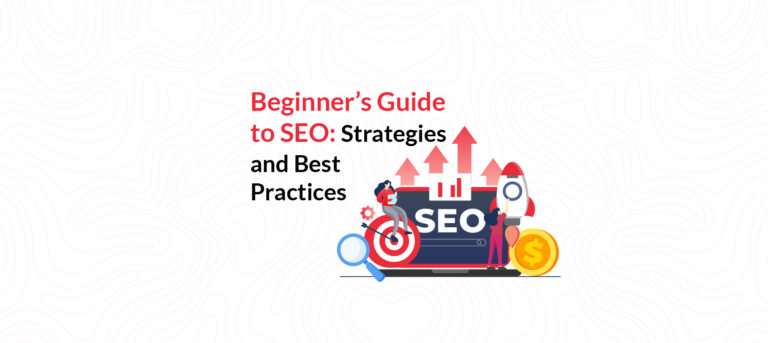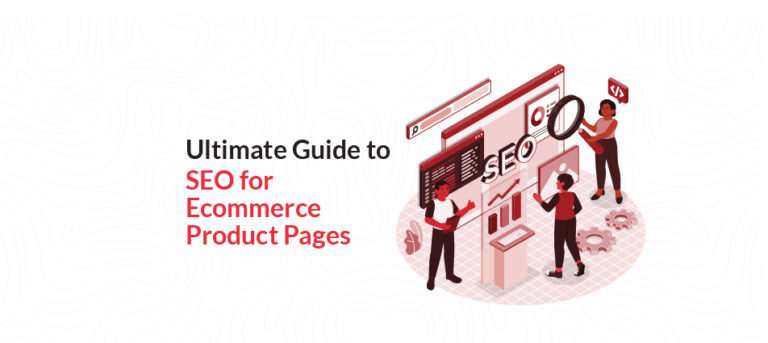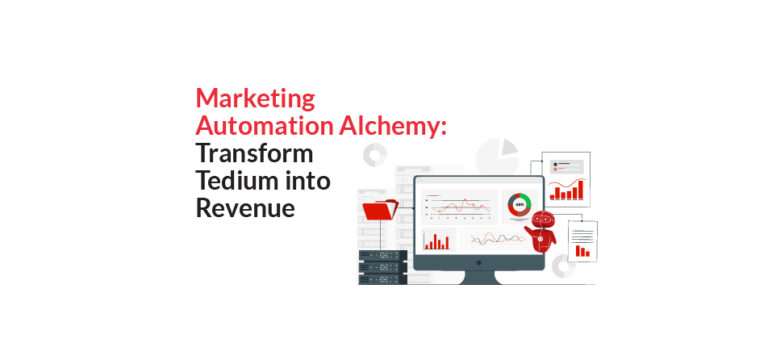The Definitive Guide to Semantic SEO: Elevate Your Google Rankings
Its not the story of today! SEO has been in frame since 1997, and Semantics, well, is old enough with its implementation in 2010.
Since then, Semantic SEO has given countless benefits, the foremost being improving the online presence of the brand with better ranking and more SEO. Ultimately, optimum semantic SEO can provide more conversions and long-term business with improved visibility and a positive reputation.
However, earlier SEO was only limited to optimum keyword implementation, but semantic have given more meaning. SEO semantics is more about meaningful, relevant, and keyword-friendly content- an all in one pact!
Let’s dive into the details.
What is Semantic SEO, and how does it Work?
Semantic SEO adds to the relevancy of your content. It is the process of elevating the meaning and thematic depth of your web content. With this, you are accompanying Google Crawlers to understand the content better. Hence, getting your content in Google’s eye for better quality to rank in the SERPs.
Google and Semantic SEO Relationship
Earlier, Google’s ranking algorithm and SEO mostly revolved around keywords. Crawlers mostly looked upon keywords for the relevancy and meaning of the content. But today, it is far ahead of the ordinary relationship.
Like facial expressions, context, tone, and the paragraphs before and after our words, all impact their meaning. Google tried to add more human-like semantic features to rank and understand the web content.
How Does Semantic SEO Work?
SEO semantic improves the user experience with contextually accurate information.
For this, it uses a variety of Natural Language Processing (NLP) techniques and machine learning for the correct context of the search result.
Note: NLP is a branch of artificial intelligence that focuses on enabling computers to understand, generate and interpret human language. This makes semantic search possible.
Semantic searches also use semantic ranking and indexing. This ensures the semantic information and relevant documents are ranked based on semantic similarity.
The system constantly analyses this information for user interactions. Thus, making it a very powerful tool for personalized and meaningful searches across multiple domains and applications.
Semantic SEO vs. Traditional SEO: What’s the Difference?
Semantic SEO has come far ahead of traditional SEO. The two approaches are meant to optimize the search content but with different focus and techniques.
- Keyword Focus
Traditional keywords emphasised more on keyword optimization more. The use of specific keywords, meta description and other on-page elements had a key role in SEO.
While semantic keywords revolve more around the relevancy of the content. It aims to create content that comprehensively covers a topic, uses related terms, and addresses user intent rather than relying solely on specific keyword matches.
- Content Structure
Traditional SEO prioritizes keyword density and placement in content parts of headers, titles, and within the body of the content. Semantic SEO is inclined more toward content structure and organization.
- User Intent
While traditional SEO focuses more on strong keywords without understanding the user intent, SEO semantics turn out to be the opposite. It goes beyond keyword usage for understanding and addressing user intent.
- Contextual Understanding
Traditional SEO may rely on explicit keyword signals without understanding the context. Instead, semantic SEO uses natural language processing and machine learning to understand the context.
- Structured Data Markup
Traditional SEO focuses on structured data used for basic elements like schema markup for reviews. While semantic one focuses on advanced structure data markup like Schema.org. This gives detailed information about the content and the context.
Why is Semantic SEO Important for Your Business?
Semantic SEO is purposed more towards a satisfying user experience with improved searches and more understandable content. Also, it provides quick answers for users who do not want to wait for long.
- Previously, the ranking completely revolved around the placement of keywords within the content, irrespective of the relevancy of the content piece. With the introduction of semantic seo, the contents started making more sense. Now, it is no longer limited to writing content, but inclined towards more meaning that reaches the right kind of audience.
- It eases consumer behavior as they find the platform more relevant. The consumer is more likely to find accurate search results. Semantic SEO helps match the searches and, thus, the listings to users to get rid of unnecessary searches.
- With appearing higher in the right crowd, there are higher chances of conversion rates. By including keywords and approaching different ideas and topics, the result can match the customer’s needs, thus improving the ranking.
Best Semantic SEO Strategy to Improve Rankings
Want to improve your digital presence? These strategies of semantic SEO can turn your tables upside down.
Content quality
This foremost factor is to ensure high quality and more informative content. This will provide answers to user queries.
Keyword Research and Intent Mapping
Keep strong keyword research, along with ensuring it sticks to the user intent and context of the content.
Writing semantic content
Semantic SEO content must contain the following pointers for a smooth drift.
- Use synonyms, relevant words, contextually correct keywords for improving the chances of higher SERPs.
- Regular keywords should not be missed out.
- Make a group of topics and contents for more visibility.
- Use Schema markup for structured information for the website content and search engine context.
- Optimize the site’s back end with technical SEO.
Use Of Semantic Seo Tools
At last, analysing the metrics is the key to know the upfall and downfall of your ship. Here are some of the tools to help.
Use SEO Software
Use SEO tools like Semrush that find the semantic SEO keywords or templates to use for creating structure.
More tools like LSI Graph helps with semantic and latent semantic indexing (LSI) keywords. Its minimum subscription plan begins from $14.69/month. Another such alternative tool is Keysearch with a free trial followed by small amount of subscription.
Answer the Public
This is another important tool for seeking answers for the public. The tool shows general questions that most of the public is asking. This helps in giving ideas for long-tail keywords and discover more of the search intent.
Look at People and Also Ask
Search for people’s common questions and answers with the FAQ section coming below a few search results. By looking at those questions, it is easier to find the user intent and common content searches.
Google Trends
This free google tools lets you find the coming trends, popular terms and topics evolving overtime.
Google Auto Suggest
This is one of the most helpful feature for how it gives real-time suggestions of terms people have been using. You can optimise the content according to the autosuggest phrase and tailor the content accordingly.
Conclusion
Search engine optimization has evolved overtime and so must the online businesses. The website owners must preach the seo strategies with constant updates to keep its mark.
Here Semantic SEO is everything! Adding more relevancy, meaning, and search intent is now an essential to keep the customers intact with the website and brand. This cannot be done single handedly.
But with digital marketing specialists like OPositive, one can expect positive results. Here you get:
- The content excellence center at Queen+
- Real-time business data and analysis by Studio+
- High authority portal networks with DR 70 above at Tribe+
- Team for strategic roadmaping for the client on-boarding with team War Strategists
For performing expert SEO, OPositive is highly tech-enabled with internal tools like Extract+, Crawl+, Live+ and Caffeine+ for all the semantic SEO concerns.
Gear up your Google presence by making the right choice!
FAQ
What is Semantic Web SEO?
Semantic web SEO is the process of improving the online presence of the website with meaningful, relevant and substantial content. This SEO not only focuses on keywords but how these keywords are used along with maintaining the relevancy and meaning of the content. It is driven by the contextuality of content.
Is semantic HTML better for SEO?
Yes it is! Semantic SEO gives explicit meaning to the content structure, making it easier for search engines to understand the content and index.
How does semantic search impact SEO?
Semantic SEO adds to the relevancy, intent and meaning of the content, giving it more value. It accompanies the Google crawlers to understand the content better.
How do I apply semantic SEO to different niches?
Implementing SEO in different niches cannot be done single-handedly. For this, one can get help from SEO experts like OPositive who have different tools and SEO experts for every niche. From scratch to long term, OPositive can help throughout.
What is semantic markup for SEO?
Semantic markup is the process of adding meaning to the content given on the web page. This adds to the relevancy, and intent of the content on the web page.
What are semantic keywords for SEO?
Since semantic contents are meant to add meaning to the content, semantic keywords are words or phrases that are conceptually connected with the keywords. This is how the content and the keyword together begin making sense.







